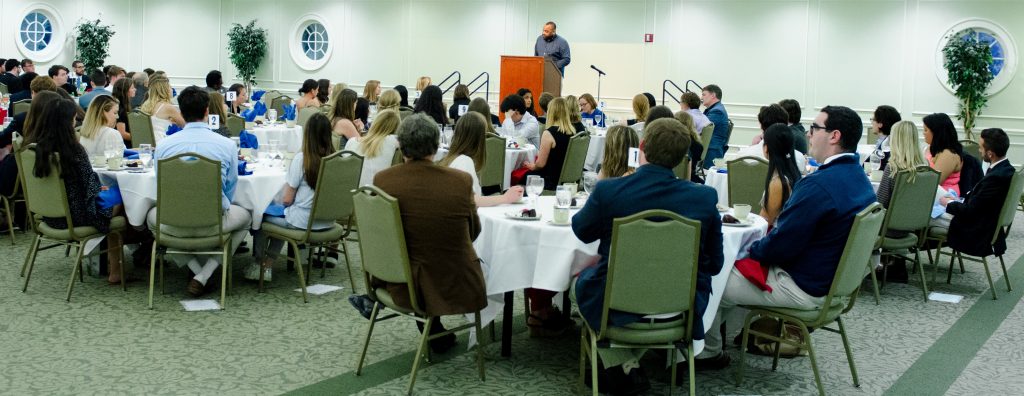
“You made it.”
Dr. Julian Hayter, the faculty speaker at Jepson’s 2018 Senior Banquet, launched his remarks with this simple statement. It’s a familiar theme during Commencement season because it reflects an important accomplishment — four years of hard work pay off with a degree.
But what does the degree signify? And why do we say that it “pays off”? Economists who write about post-secondary education categorize how a degree pays off in two somewhat distinct ways. First, students gain skills that they can use in the labor market, skills that we say are “marketable” and for which someone will pay the graduates. This is the human capital theory of education, pioneered by Alfred Marshall at the turn of the century and greatly refined in twentieth century studies.
Second, economists talk about the degree’s credential in terms of what it signals — determination, grit, conformity, and the capacity to do what is required to earn the degree. Signaling theory holds that the payoff to a degree is largely a result of employers being willing to pay for the signal. Bryan Caplan’s The Case Against Higher Education argues that the return to higher education is largely a return to the signal of degree acquisition, and, as such, we’re in something of an arms race to obtain credentials.
Does either of these adequately capture what we do at the Jepson School of Leadership Studies? In his remarks, Dr. Hayter challenged us to think differently. Hayter urged soon-to-be graduates to think more profoundly, to “vindicate” the School from “the clutches of means.” He urged our students to consider their learning as the acquisition of a life skill: a profound understanding of the context of leadership.
Sometimes what you learn matters, and matters profoundly, not simply as way to signal that you have grit or you have a skill.

At Jepson, Senior Banquet marks the beginning of the Commencement season. It’s a bitter sweet moment — the beginning of the end. A new class of graduates is readying themselves to leave Jepson and begin a fresh set of adventures. As our students near graduation, we should celebrate that they not only have skills and signals, but they also have acquired actual knowledge of leadership. Of what it takes to lead well or to lead poorly, of contexts that shape decisions and actions and give us models for the future, whether these be models to avoid — pitfalls — or to emulate. This is learning that will serve them well.
